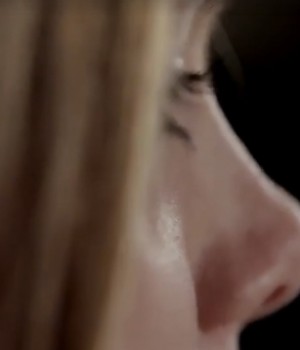 It is assumed that exercise is good for our mental health, but does it make us more creative?
It is assumed that exercise is good for our mental health, but does it make us more creative?
Masses of recent research have convinced the majority of us that hitting the treadmill, going for a bike ride or doing anything that gets our heart racing significantly helps our mental health, in terms of being more alert and energetic. But how about creativity? What effect does exercise have on creative juices?
David Blanchette and his colleagues examined this very issue. They thought, given that exercise is great for brains, surely it should also be good for creativity. They recruited a bunch of people and divided them into three groups. Group 1 did no exercise prior to completing a creativity task (lucky them, some of you might be thinking). Group 2 completed 30 minutes of aerobic exercise, such as walking, bike riding, swimming and running, and following this, completed a creativity task. Like Group 2, the final group participated in 30 minutes of aerobic exercise, however, they had to wait two hours before completing the creativity task.
Blanchette and co. found that both Groups 2 and 3 performed significantly better on the creativity task than did the no-exercise group. As well as concluding that aerobic exercise enhances creativity, they also pointed out that the positive effects of this activity are somewhat enduring, and certainly last at least up to two hours after completing exercise. Sort of like an exercise hangover (and thankfully, a hangover than doesn’t leave you with a bad headache and the urge to vomit).
 There are many ways that you might like to apply this finding to your own life, however active or sedentary it currently is. Try incorporating a bit of exercise into mornings of days in which you know you need the creative thinking part of your brain firing on all cylinders. If you currently exercise in the evening, this might just involve a simple shift of exercise time.
There are many ways that you might like to apply this finding to your own life, however active or sedentary it currently is. Try incorporating a bit of exercise into mornings of days in which you know you need the creative thinking part of your brain firing on all cylinders. If you currently exercise in the evening, this might just involve a simple shift of exercise time.
If you are a facilitator of workshops, encourage everyone to go to the gym or at least go for a brisk walk before entering into the workshop room.
A relatively easy and social thing to do could be to create a lunchtime walking group to get the creative juices flowing in time for the afternoon.
And if you are up for something a bit different, try running a mini-aerobics session right in the middle of your next meeting or workshop that requires creative thinking. If you chose to implement this option, please make sure you have some spare deodorant or room freshener on hand.
Dr Amantha Imber is the head inventiologist at international innovation consultancy Inventium. She is also author of The Creativity Formula: 50 scientifically proven ways to boost creativity in work and in life.
Photo: Sasha W





![How to pitch sales and marketing ideas to your boss with James Tuckerman [FREE REPORT]](https://anthillonline.com/wp-content/uploads/2015/07/Render-3-300x194.png)
![How to confidently raise venture capital… with Jack Delosa [CHEAT SHEET]](https://anthillonline.com/wp-content/uploads/2016/04/jack-de-losa-confidently-raising-venture-NFSU-rebrand-01.pdf-Box-2016-04-19-12-37-42-100x75.png)
![Networking is for suckers… master Inbound Marketing [FREE REPORT]](https://anthillonline.com/wp-content/uploads/2015/03/inboundreloaded-100x75.png)
![Seven steps to crafting the perfect email, with James Tuckerman [FREE REPORT]](https://anthillonline.com/wp-content/uploads/2015/08/7-steps-cheatsheet-3d-cover-nuova--100x75.png)
![Need cash for your startup or innovation? Here’s the Ultimate Grant Guide for Innovators and Startups [FREE DOWNLOAD]](https://anthillonline.com/wp-content/uploads/2015/10/INNOVATORS-GRANT-GUIDE-NFSU-page-spread-100x75.png)
![Strategic Alliances with Simone Novello [FREE INFOGRAPHIC]](https://anthillonline.com/wp-content/uploads/2015/08/Capture6-100x75.jpg)


![How to zig when everyone else is zagging, with Julio De Laffitte [CHEAT SHEET]](https://anthillonline.com/wp-content/uploads/2015/08/Capture2-300x194.jpg)
![Five ways to manage your time by managing yourself, with Helen Ebdon [CHEAT SHEET]](https://anthillonline.com/wp-content/uploads/2015/07/ebdon-3d-cover-01--100x75.png)
![Do you have happy staff? 5 ways to improve performance [FREE DOWNLOAD]](https://anthillonline.com/wp-content/uploads/2016/06/chris-smith-cheatsheet-04c.pdf-Box-2016-06-30-20-45-20-100x75.png)
![New Zealand’s Xero eyes US IPO, further disruption as subscribers increase [INFOGRAPHIC]](https://anthillonline.com/wp-content/uploads/2014/07/sruuuuujana-212x194.png)
![Ever wonder if your ‘content marketing’ is really just crap? You gotta see this! [INFOGRAPHIC]](https://anthillonline.com/wp-content/uploads/2014/08/content-100x75.jpg)
![7 Business Lessons From Game of Thrones [INFOGRAPHIC]](https://anthillonline.com/wp-content/uploads/2014/10/infographic-games-of-thrones-041-100x75.jpg)
![How to build your own Media Empire… In seven steps with Nathan Chan [INFOGRAPHIC]](https://anthillonline.com/wp-content/uploads/2014/10/Nathan-Chan-Infographic-e1413419529176-100x75.jpg)
![5 Business Lessons From Tinder [INFOGRAPHIC]](https://anthillonline.com/wp-content/uploads/2014/10/Tinder-Elegant-Infographic-100x75.jpg)



